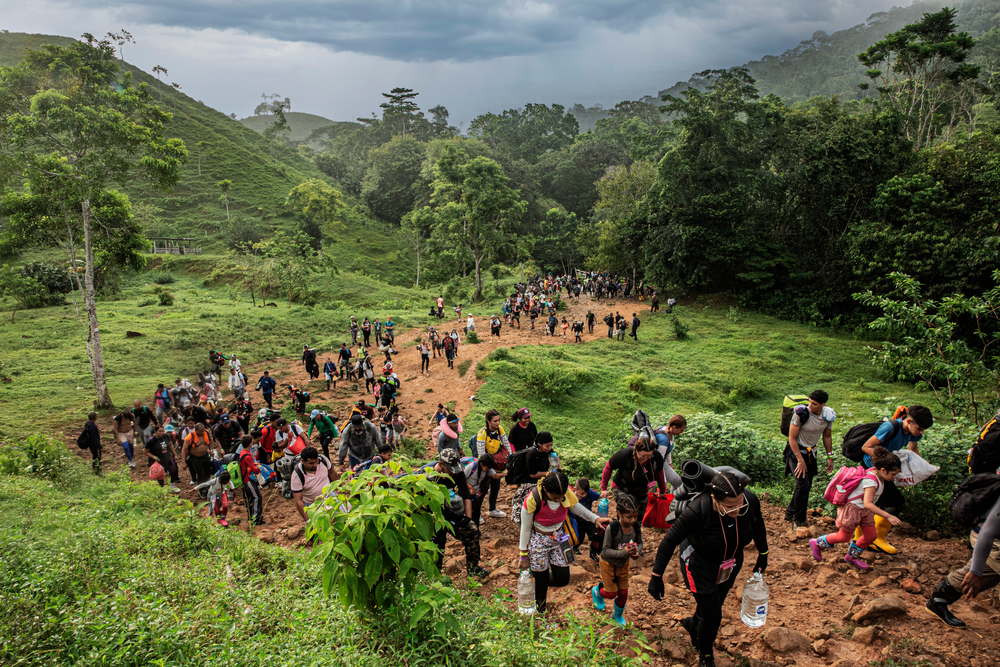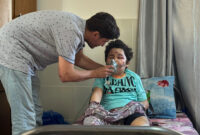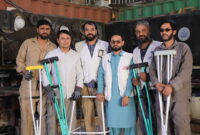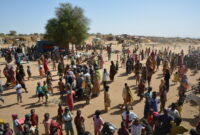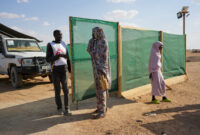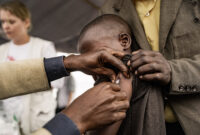MSF sees sharp rise in people seeking treatment for sexual violence after crossing Darien Gap
Reported instances of sexual violence experienced by migrants attempting to cross the Darién Gap rose sharply in December 2023, according to Doctors Without Borders/Médecins Sans Frontières (MSF), despite the fact that crossings of the roadless region between Colombia and Panama were lower than in previous months.
MSF teams in Panama treated 214 survivors of sexual violence in December after they had crossed the Darién Gap. This equates to one act of sexual violence being committed every three and a half hours.
“Every month we record a higher number of total cases [of sexual violence],” says Carmenza Gálvez, MSF medical coordinator in Colombia and Panama. “This is appalling.”
The number of sexual violence survivors treated by MSF teams in December constitute one-third of the 676 cases treated throughout 2023. Over recent months, MSF has repeatedly raised the alarm about escalating sexual violence against migrants in the Darién Gap.
In recent months, and with increasing frequency, MSF patients have described mass events of sexual violence, in which armed men detain groups of up to 200 migrants within a few hours of their crossing the border from Colombia to Panama, forcing them to remove their clothes before committing a range of sexual acts, from touching to rape.
MSF recorded one mass event of sexual violence in October, two in November and four in December. In most cases, the victims were women, but MSF teams in Panama have also provided treatment to men and children who were victims of sexual violence.
MSF believes that many cases are likely to go unreported, with potentially devastating consequences for survivors, as medical treatment known as post-exposure prophylaxis must be administered within 72 hours of a rape in order to prevent pregnancy, HIV infection and other sexually transmitted diseases.
“Our medical and social support team is strengthening the identification mechanism for survivors of sexual violence,” says Gálvez. “One of our biggest concerns is under-reporting, since once a case of this kind occurs, people must receive care within 72 hours to avoid contracting HIV, other sexually transmitted diseases and unwanted pregnancies.”
In addition to sexual violence, migrants have reported being victims of robberies, attacks and kidnappings on their journeys through the Darién Gap.
Between Jan. 1 and Dec. 31, 2023, more than 520,000 people crossed the Darién Gap, up from 248,000 in 2022 and 133,000 in 2021.
MSF teams in Panama have been providing medical care to people in transit at two temporary migration reception stations’ in Lajas Blancas and San Vicente and in the indigenous community of Bajo Chiquito since April 2021.
In 2023, MSF medics provided 59,800 consultations, including 21,000 consultations for children under 15 and 1,000 consultations for pregnant women. MSF mental health staff provided almost 3,000 individual mental health consultations.
MSF provides free and confidential support to people on the move at various points along the migration route between South America, Central America, Mexico and the United States.
“We demand effective action by governments to guarantee the safety and dignity of migrants in the Darién Gap,” says Gálvez. “No one should have to face this or any other form of violence for migrating.”
